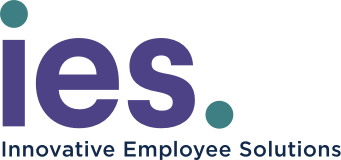Latin America, a region rich with opportunity, beckons U.S. businesses with its vast potential. With burgeoning markets like Mexico, Brazil, and Argentina, this area offers a unique blend of cultural vibrancy and economic promise.
However, expanding into Latin America involves more than just setting up shop. It requires a deep understanding of diverse international labor laws. This is where understanding the Latin American market and how to do business in Latin America becomes crucial.
The Appeal of Doing Business in Latin America
Why are countries like Mexico, Brazil, and Argentina increasingly attractive to U.S. businesses? Firstly, the region’s proximity to the U.S. simplifies logistics, significantly reducing operational and transportation costs. Moreover, Latin America boasts a population of approximately 652 million people, presenting a large and diverse labor force and consumer base. This diversity enables U.S. companies to tailor products and services uniquely suited to various segments, enhancing market penetration and partnership opportunities.
Additionally, the region has experienced a surge in technology adoption and digitalization in recent years, creating fertile ground for businesses specializing in technology, e-commerce, fintech, and other tech-related fields. However, while opportunities abound in the Latin American market, expanding into the region means hiring local employees, which can come with compliance challenges.
Navigating Compliance in Latin American Hiring
U.S. companies face several compliance hurdles when entering Latin American markets. The intricacies of international labor laws can pose challenges related to labor dispute resolution, salary structuring, and understanding of local health, safety, and employment standards. Moreover, navigating benefits, social security, and employment contract requirements requires meticulous attention to detail and an adeptness at managing cultural nuances. Successfully overcoming these challenges involves not only legal compliance, but also strategic alignment with local practices and expectations.
For example, the recent changes in Mexico’s labor laws pose a significant hurdle. In 2019, Mexico initiated a significant overhaul of its labor legislation to fortify workers’ rights, boost collective bargaining, and establish independent labor courts for dispute resolution. A critical update in April 2021 further tightened regulations around outsourcing practices. These new rules mandate that companies directly hire employees for core business activities, limiting outsourcing to specialized services only. For U.S. businesses, these changes necessitate a thorough reassessment of operational and HR strategies to ensure compliance and maintain operational fluency.
Cultural nuances must also be taken into account when hiring in the Latin American market. Though it shares certain cultural ties with the United States, significant differences in business and social practices exist. For instance, negotiation tactics differ markedly, with salaries typically quoted on a monthly rather than hourly basis. Understanding such nuances, including the importance of family and the expectation of respect for family time by employers, is vital for businesses to foster harmonious relationships and ensure smooth operations.
Understanding the plethora of legal and cultural differences in Latin America is complicated, but working with an international Employer of Record can take the burden off companies looking to hire in the area.
Working With an EOR to Simplify Latin American Expansion
EORs, such as Innovative Employee Solutions, leverage their profound regional expertise and internal resources to assist companies in navigating the complex landscape of employment compliance and cultural dynamics in Latin America.
With years of experience and a dedicated team that includes local experts, IES acts as an extension of your business, providing critical insights and support. IES not only ensures compliance with shifting legislation, but also partners closely with your company, offering a local presence and tailored support to manage international employment effectively. This partnership allows U.S. businesses to focus on core operations and growth opportunities without the burden of administrative overhead and compliance risks.
Expanding into Latin America offers exciting prospects for U.S. businesses ready to explore new markets. With the right guidance and support, navigating the complexities of international labor laws and cultural nuances can lead to fruitful and enduring engagements. By partnering with IES, businesses can confidently manage the intricacies of setting up operations in this vibrant region, ensuring compliance, cultural alignment, and operational success. Unlock the potential of the Latin American market with a trusted partner by your side and pave the way for a prosperous international expansion.
To learn more about how IES can help your company expand into Latin America, contact IES today for a complimentary consultation.
Written by: Brenda Limon, Global Business Advisor at IES
Brenda Limon is the Global Business Advisor at Innovative Employee Solutions (IES), a leading provider of remote and contingent workforce solutions specializing in U.S. and global Employer of Record, Agent of Record, and Independent Contractor compliance services in 150+ countries. Founded in 1974, IES is a woman-owned business, certified by the WBENC, and partners with companies to provide compliant employment solutions that empower people’s lives.







